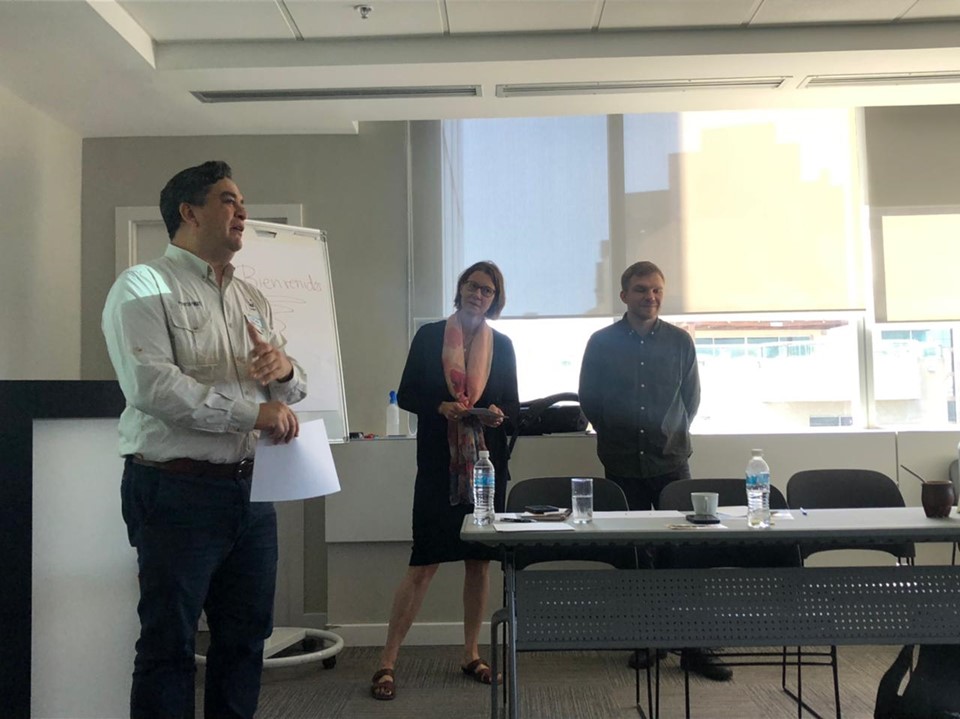As part of the business trip to the landlocked South American country of Paraguay, corsus held a workshop last week with local experts from food production and agriculture. In addition to the producer visits that recently provided us with valuable insights into Paraguayan food production, the workshop forms the basis for the Foot Impacts Toolkit (FIT) that corsus is developing as part of CLIF – Climate Impacts of Food. With the support of WWF Paraguay, many producers – especially of sugar cane, mate and beef – as well as representatives from industry associations and non-governmental organizations were recruited for the workshop.
The workshop aimed to better understand the environmental impact of food production and consumption in Paraguay and to learn from the experts present. For this purpose, the participants worked in groups and considered both the consumption perspective and the production perspective. The distinction between these perspectives is especially important for Paraguay, as many so-called cash crops are grown in the country as lucrative crops, which are not produced for the domestic market, but are almost exclusively exported. We were impressed not least by the openness as well as the solution-oriented attitude with which those present talked about the problems of agricultural production in Paraguay.
These problems are sometimes different from those in Germany. For example, deforestation is a major issue in Paraguay. Since the 1990s, primary forests in the country have been massively cleared in favor of arable land – including for said cash crops. Although the advanced deforestation has slowed down in the meantime, it has recently threatened the hitherto hardly developed semi-arid Gran Chaco region, which is home to valuable ecosystems. Since the groundwater in the Chaco is highly saline, water from distant regions is increasingly being transported into the Chaco. In addition to further depleting Paraguay’s water resources, this also raises the question of whether renewable energy is being used to transport water or whether fossil resources are being used to the detriment of the climate.
These and many other insights from the workshop contribute significantly to the basis on which corsus is developing FIT. FIT is a tool that will provide information on the sustainability of food in various national contexts for consumers as well as for retailers and out-of-home consumption. This information will then be made available in a communication tool to be developed by WWF Germany.
More information about corsus: Homepage – Corsus
